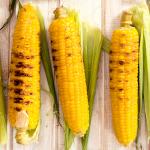How do you know when a "study" isn't really a study? When the people who performed it wrote up a brochure hyping its results before actually bothering to publish a scientific paper.
Pesticides
We had a really bad flu season this year. The CDC just announced that about 80,000 Americans were killed.
Some studies are so incredibly stupid, that one wonders how they managed to get published in any scientific journal, let alone a prestigious one. And yet, it has happened, once again1.
Like the word "chemical," the word "pesticide" has been hijacked and then unfairly demonized.
Two weeks ago, we reported on a bizarre decision by the online news arm of the journal Science: The outlet had reprinted an article
One of the problems with science communication is that we are always a day or two behind the mass media. The general pattern is this:
The Environmental Working Group has once again released their Dirty Dozen list — the fruits and veggies they say are covered in pesticides. One minor detail: organic produce contains pesticides, too, but that doesn't quite fit their narrative.
NYT's Nicholas Kristof sure knows how to live harder, not smarter. He's been avoiding chemicals and living clean — as he puts it — for several years.
Several years ago, during a layover in Copenhagen's airport, I struck up a conversation with an elderly British couple.
When studies are published in major journals one assumes that study adds value to scientific knowledge - sadly this is not always the case.










